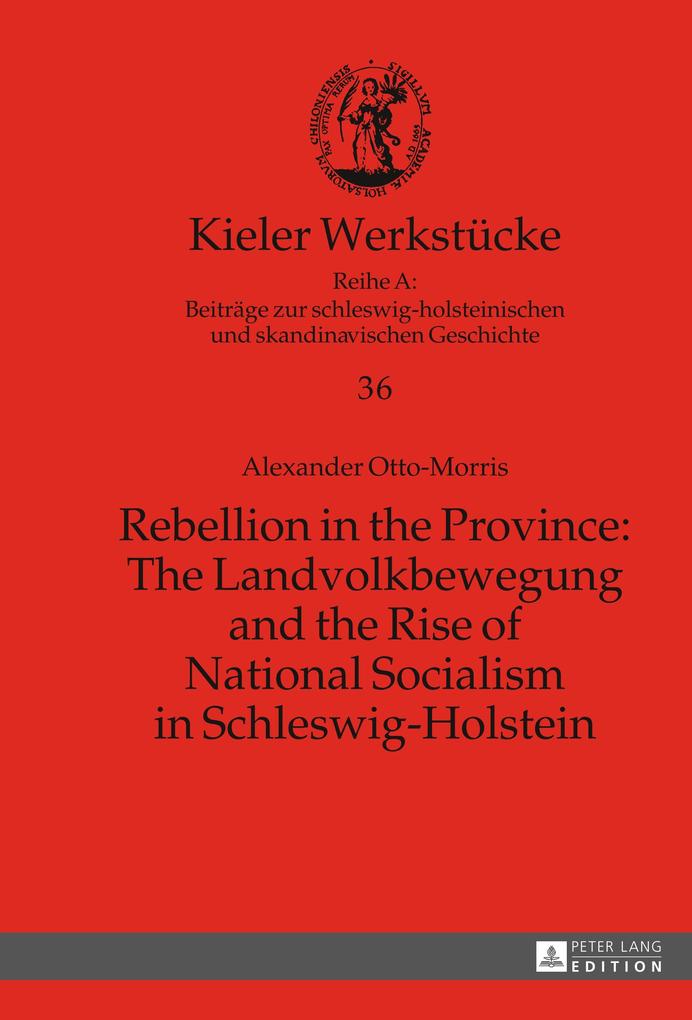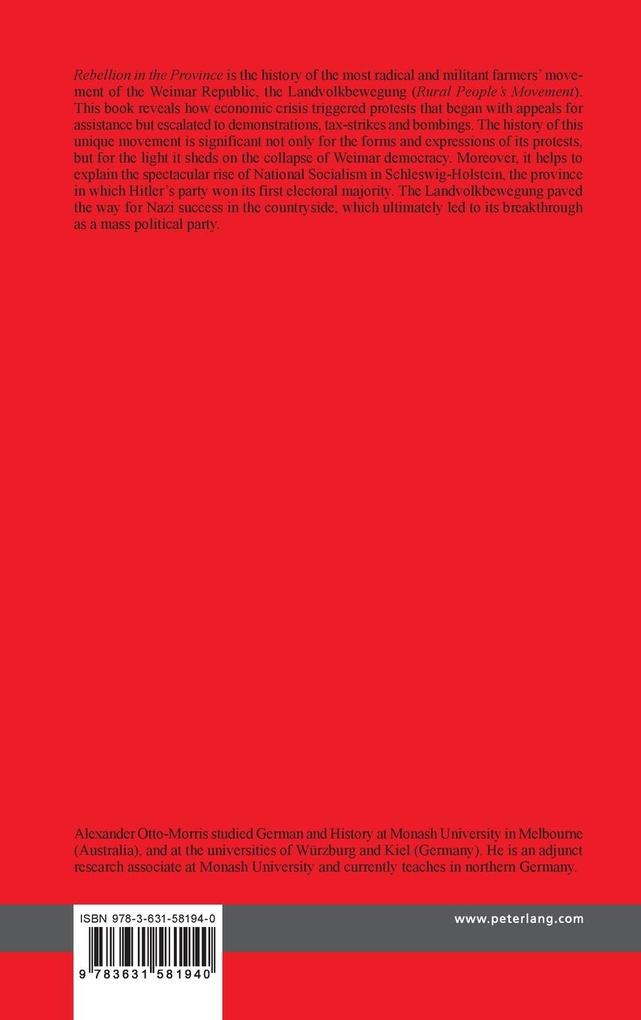
Zustellung: Di, 15.07. - Fr, 18.07.
Versand in 7 Tagen
VersandkostenfreiBestellen & in Filiale abholen:
In the late 1920s the protests of the Landvolkbewegung (Rural People s Movement) in Schleswig-Holstein escalated from tax-strikes to bombings and the rejection of the Weimar Republic. This history sheds light on the fall of Weimar democracy, the dramatic rise of National Socialism in the countryside and its breakthrough as a mass political party.
Rebellion in the Province is the history of the most radical and militant farmers' movement of the Weimar Republic, the Landvolkbewegung (Rural People's Movement). This book reveals how economic crisis triggered protests that began with appeals for assistance but escalated to demonstrations, tax-strikes and bombings. The history of this unique movement is significant not only for the forms and expressions of its protests, but for the light it sheds on the collapse of Weimar democracy. Moreover, it helps to explain the spectacular rise of National Socialism in Schleswig-Holstein, the province in which Hitler's party won its first electoral majority. The Landvolkbewegung paved the way for Nazi success in the countryside, which ultimately led to its breakthrough as a mass political party.
Inhaltsverzeichnis
Contents: German History Weimar Republic Rise of National Socialism Landvolkbewegung Rural People s Movement Schleswig-Holstein Economic Crisis Farmers Protests Tax-strikes Conflict with the Authorities Bombings Anarchism Nationalism Anti-Semitism Failure of Democracy.
Produktdetails
Erscheinungsdatum
30. Juli 2013
Sprache
englisch
Auflage
1. Auflage
Seitenanzahl
384
Reihe
Kieler Werkstücke
Autor/Autorin
Alexander M. Otto-Morris
Serie hrsg. von
Thomas Riis
Verlag/Hersteller
Produktart
gebunden
Gewicht
725 g
Größe (L/B/H)
236/160/27 mm
ISBN
9783631581940
Entdecken Sie mehr
Bewertungen
0 Bewertungen
Es wurden noch keine Bewertungen abgegeben. Schreiben Sie die erste Bewertung zu "Rebellion in the Province: The Landvolkbewegung and the Rise of National Socialism in Schleswig-Holstein" und helfen Sie damit anderen bei der Kaufentscheidung.










